
Showing Up
I discovered that my hotel’s breakfast was far from adequate, but knowing downtown L.A., I knew that there was a Denny’s between the 7th/Metro subway stop and the convention center so I stopped there for breakfast and a chapter of the novel I’ve been reading before facing the crowds. I expected to be able to walk up to a kiosk to print a registration badge, but of course it was instead a long line to get to the computers with a curvy line setup, just like Disneyland, which I suppose makes this the second-happiest place on earth.
I had a bit of extra time and I was thirsty from the salty Denny’s breakfast so I bought a diet Coke from the cafe for the low low price of $4.50. Tomorrow, I’ll bring my own beverage.
I sat outside the panel room waiting for them to open the doors, solving the ridiculously easy Poetry Magazine crossword puzzle and listening to the people who know each other greeting each other while I was too timid to speak to any of the strangers who surrounded me. Eventually, they opened the doors and I took a seat.
Flash Fiction International: Readings from the Book
The panel was a bit delayed because one of the panel members, Peter Zaragoza Mayshle, was being held hostage at registration because they couldn’t find his name in the system. Finally, he was released at 9.15 while Robert Shapard was giving his introduction. The authors who read were all part of an anthology edited by Shapard which was so briefly introduced that I didn’t even get a glimpse of the cover, let alone catch the title, but some quick Google work identified it as, not surprisingly, Flash Fiction International: Very Short Stories from Around the World. The central concern of the panel was what was happening with flash fiction from outside the U.S., with writers from Ireland, Mexico, Iran and the Philippines represented. Mónica Lavín’s “Volcanic Fireflies” was especially wonderful and I’d love to find the original bestiario where it was published.

On the way to the next talk, I got to cross off the “hey, I know you,” square on my AWP bingo card as I bumped into Jeff Parker.
Write Me Right: Ideas and Resources for Writing Diverse Characters
Very different feel with this panel. A lot more reading prepared statements rather than free statements. There’s a palpable difference between reading literature and reading a speech. We opened with Yvonne Mesa giving a sort of state of the union of diversity in literature both in terms of authors and characters. One interesting point is that white ways of knowing are superimposed on diverse characters as a result of many of these characters being written by white writers. Diverse writing can actually reinforce monoculturalism if done poorly, e.g., all Latino characters portrayed as having the same sociopolitical status, diet, etc.
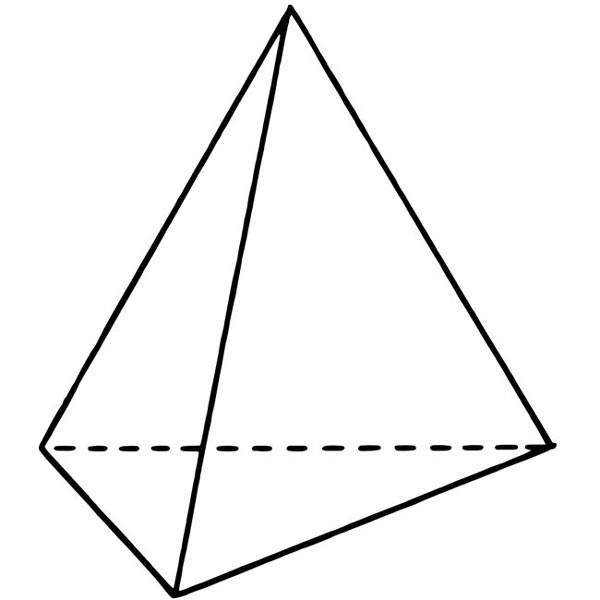
But then we moved to interactivity, and I ended up being one of four volunteers who were challenged to take six pencils to make four equilateral triangles. I felt a bit like a cheater as my math education background brought me to the solution rather quickly, by looking beyond two dimensions.
This was meant as a metaphor to bring us to researching diverse culture: First dimension: culture, second dimension: personal experience (in particular looking at narratives actually written by members of the group) and third dimension: attitude. The second round, from Tamara Gray was less read and more compelling looking at the second dimension a little more closely, pushing writers to go beyond the master narrative of a story, e.g., Ronald Takaki’s A Different Mirror as an alternative view of American history from the view of the non-Anglo peoples.
We then had Valarie Budayr talking about the character’s attitudes and how that impacts them, looking at how their culture and religion impact their view of the world. What is the view on education in the home life of the character?

Visiting the Bookfair
My first stop at the bookfair was Journal of the Month. This is a wonderful project where readers can choose to receive four to twelve journals per year selected from a significant roster of publications. One of the things they did for the bookfair was offer a bingo game. The official rule was that one had to get eight stamps from visiting the various publications. I decided to just fill the whole thing in, which gave me an enjoyable way to cycle through a number of the exhibitors. Two of the journals had lost their stamps already so I got initials from one and had one of the booth people draw me a picture for the other.

I also made it to the Barrelhouse table to get my “Fucking Poets, Man” T-shirt, visited with the good people of The Southampton Review who were responsible for publishing my fiction for the first time.
I had planned on going to a Claudia Rankine signing today, but apparently it was an error in the program. I did spot this close to where she allegedly was to be:
I also saw evidence that I write in the wrong genre:
The end of my bookfair visit on the first day left me quite exhausted. A bit too much interacting with people for one day.
First Books: What to Expect When You’re Expecting
My last panel of the day was a bit of jumping the gun as I’m still at the query stage of the novel (and have a significant expectation that it may never land an agent). Even so there were a number of useful tips offered up. I found it particular inspiring to hear Matthew Thomas talk about how when he thought about what success would mean for him and determined that, “Success would give me time to write,” which was, what he was doing at that point and helped feed the energy of the writing process. Chris Scotton talked about his editor seeded the sales staff with galleys and solicited their opinions about the work which in turn led to them being essential supporters of the work. Many of the writers noted how publishing a book led to them being pushed into being essayists in service of the book’s publicity.
Social Time
After the last panel and a bit of downtime, I headed over the University of Tampa cocktail hour and had a chance to see a number of old friends from alumni and faculty.
AWP16 Keynote Address by Claudia Rankine
This was the big event for me. Claudia Rankine’s Citizen: An American Lyric was the best book of 2015 as far as I’m concerned. A work of genius. Not surprisingly, race was a central concern for Rankine in her keynote, talking about how the assumption that white is the default creates a climate of suppression for people of color. Looking back on my reading lists for my MFA, there are some disturbing numbers: Just 2 out of 51 works I read were by people of color and 12 out of 51 were by women. The two female mentors I had did much better on the gender front, but of the two people of color in my reading lists, just one was suggested by a mentor, the other was a writer whose work I had read before and wanted to read more deeply. I fear that my own recommendations to my peers were not much better.
There’s a tendency to view any recognition of race on the part of writers as moving their work into protest or politics or sociology, which is unfortunate as it ignores how much this is central to the experience of everyone, not just people of color. Being able to ignore racism is a luxury and one largely reserved for white folks. There was a lot in the “write me right” panel earlier in the day which helped inform my own reactions to Rankine’s talk.
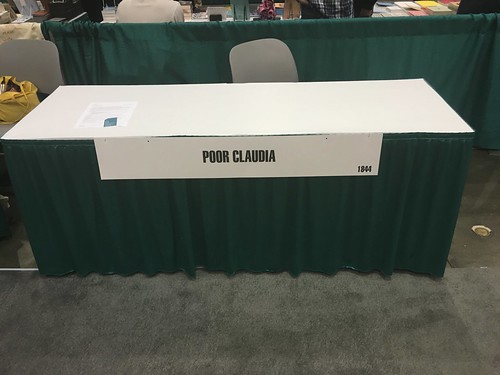
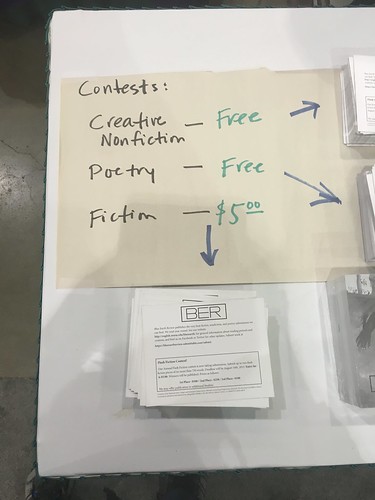
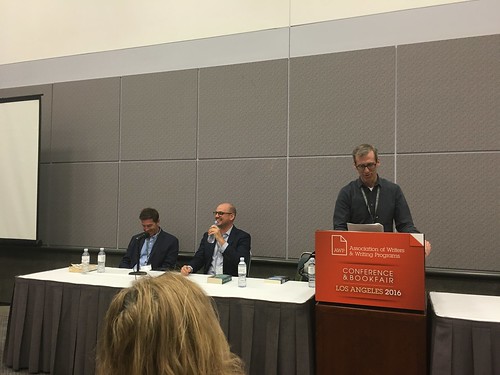
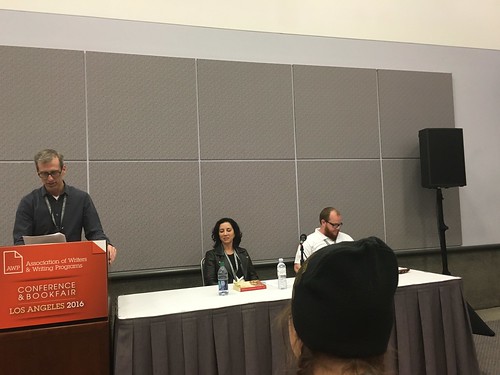
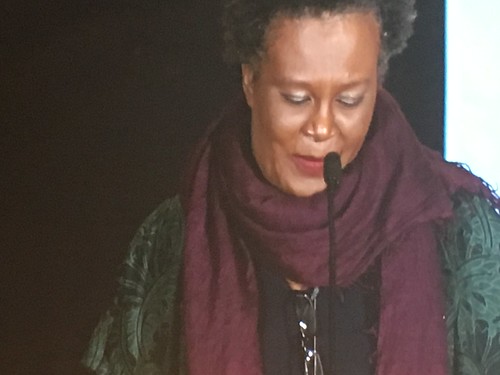
Leave a Reply